 I have the pleasure to welcome Prof. Edward A. Lee (Robert S. Pepper Distinguished Professor, University of California — Berkeley, USA) in April 2020 in Bordeaux. Prof. Lee is an internationally recognized pioneer in research in Cyber-Physical Systems (CPS). He has delivered more than 180 keynote talks and other invited talks at venues worldwide (h-index=84 with more than 48000 citations). He has pointed out the failure of standard abstraction layers, the need of reliable timing behavior, and lack of temporal semantics of existing programming language models for CPS design. Prof. Lee has led the development of several influential open-source software packages, notably Ptolemy and its various spinoffs. See his resume here.
I have the pleasure to welcome Prof. Edward A. Lee (Robert S. Pepper Distinguished Professor, University of California — Berkeley, USA) in April 2020 in Bordeaux. Prof. Lee is an internationally recognized pioneer in research in Cyber-Physical Systems (CPS). He has delivered more than 180 keynote talks and other invited talks at venues worldwide (h-index=84 with more than 48000 citations). He has pointed out the failure of standard abstraction layers, the need of reliable timing behavior, and lack of temporal semantics of existing programming language models for CPS design. Prof. Lee has led the development of several influential open-source software packages, notably Ptolemy and its various spinoffs. See his resume here.
During his stay, he will share his experience on open issues in CPS modeling, control and safety management, and emerging Artificial Intelligence (AI) issues. His coming to the University of Bordeaux is supported by the cluster SysNum. He will give a conference on “interaction, observation (and Determinism and Free Will)” on April 14, 2020, at 10:00, at the IMS lab:
Abstract:
Interaction is more powerful than observation. This may help to explain the recent revolution in machine learning, the power of feedback systems, the limitations of the Turing-Church model of computation, the differences between cyber-physical systems and computing systems, and the limits of objectivity. But what is interaction? It requires first-person involvement, a self, but the concept of "a self" is treacherous. In this talk, I examine the differences between interaction and observation from a technical point of view. I leverage the results of four Turing Award winners, starting with the concept of a zero-knowledge proof (introduced by Shafi Goldwasser and Silvio Micali), which requires first-person interaction. I continue with Judea Perle's demonstration that observation of data alone, without any interaction with the mechanisms that produce the data, cannot be used, by itself, to infer causality. It reveals only correlation. I then show that this observation has a strong connection to a classic result by Robin Milner, who shows that two automata that cannot be distinguished by observation alone may be able to be distinguished through interaction. These technical interpretations of interactions lead inevitably to treacherous ground, connecting with deep philosophical questions about determinism and free will.
More details will be available soon.






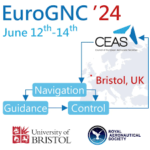







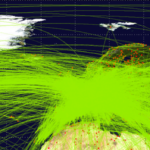


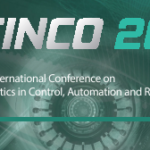
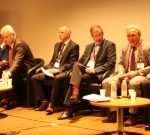
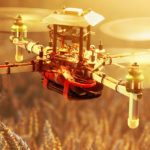

Comments are closed.